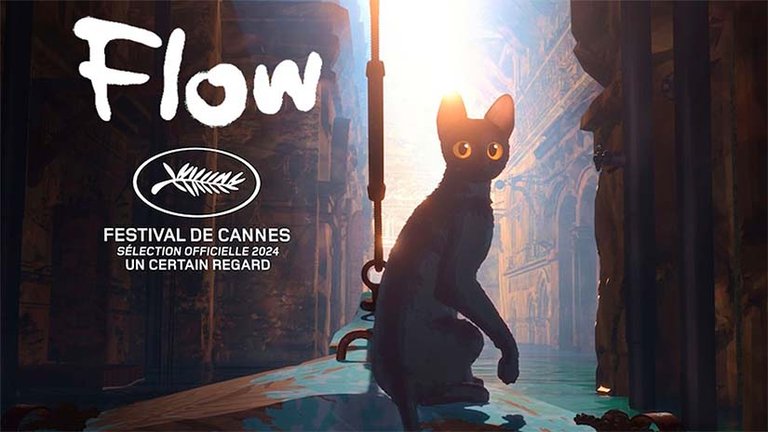
Globo de Oro a la mejor película animada
Before this year's Golden Globes ceremony I had not heard anything about this film. Coincidentally - or maybe not so much - a week later I found this title on the billboard of a film festival here in Santiago and I saw it as an opportunity to see a film of which I only knew that the protagonist was a cat. So, with this minimal background, I set out to watch this film, motivated by the logical curiosity to answer why it won the award for Best Animated Feature Film at the Golden Globes.
Antes de la ceremonia de los Globos de Oro de este año no había oído nada sobre esta película. Casualmente - o quizá no tanto - una semana después encontré este título en la cartelera de un festival de cine acá en Santiago y lo vi como una oportunidad para ver una película de la que sólo sabía que el protagonista era un gato. Entonces, con estos mínimos antecedentes me dispuse a ver esta cinta movido por la curiosidad lógica de responder por qué se llevó el premio a mejor película de animación en los Golden Globes.
In summary Flow is a great adventure, but if we analyze it it has a variety of messages and themes that make it an interesting reflection. The story begins with a cat who wakes up in a world - this world, it seems - covered in water. We see some rivers and puddles, but we also see vegetation, buildings, boats, carved wood, birds, mammals... the only thing we don't see anywhere are human beings, what happened to us? Why aren't we in that world? How long has it been since we stopped existing on a planet that was our home? None of that is answered in the film, but it's important to understand that there are no people (yes, there were, and hence the buildings) which makes us presume some type of global catastrophe, perhaps a pandemic or some drastic climate change. In that sense, Flow is also an environmentalist and somewhat apocalyptic film. The truth is that this world without humans in which we find this cat will undergo another change a few minutes into the story. In the middle of a riot with some dogs, the cat encounters a stampede of antelopes fleeing something that soon reaches them all: a great flood. Let's think about a huge tsunami that hits a city and the speed with which - in the blink of an eye - the sea level can rise under those conditions. Cats have a reputation for not enjoying water much, so we can imagine how uncomfortable the situation is for our feline protagonist.
En resumen Flow es una gran aventura, pero si nos ponemos a analizarla tiene una variedad de mensajes y temas que la convierten en una interesante reflexión. La historia comienza con un gato que se despierta en un mundo - este mundo, según parece - cubierto de agua. Vemos algunos ríos y charcos, pero también vemos vegetación, construcciones, barcas, maderas talladas, aves, mamíferos... lo único que no vemos por ninguna parte son seres humanos, ¿qué nos pasó? ¿por qué no estamos en ese mundo? ¿hace cuánto tiempo que dejamos de existir en un planeta que era nuestro hogar? Nada de eso se responde en la película, pero es importante entender que no hay personas (sí, las hubo, y de allí las construcciones) lo que nos hace presumir algún tipo de catástrofe global, tal vez una pandemia o algún drástico cambio climático. En ese sentido, Flow también es una película ambientalista y algo apocalíptica. Lo cierto es que ese mundo sin humanos en el que nos enontramos a este gato, sufrirá otro cambio a pocos minutos de iniciada la historia. En medio de una revuelta con unos perros, el gato se encuentra con una estampida de antílopes que huyen de algo que no tarda en alcanzarlos a todos: una gran inundación. Pensemos en un tsunami enorme que se descarga contra una ciudad y en la velocidad con la que - en un abrir y cerrar de ojos - puede subir el nivel del mar en esas condiciones. Los gatos tienen fama de no disfrutar mucho del agua, así que ya nos podemos imaginar lo incómoda que es la situación para nuestro protagonista felino.
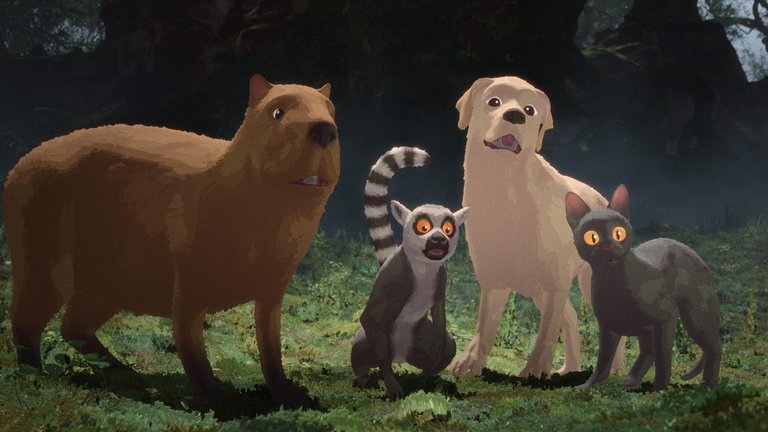
But the point is not just to swim a little until you find some high ground, but to find a way to survive in this new world, to adapt to change. In the midst of his wanderings, the cat comes across a series of animals with whom he establishes different types of relationships at different times in the film. Sometimes the cat will feel like prey and other times like a predator, but in their own way, all animals will understand the need to collaborate. Can the need overcome instinct?
Pero el tema no es sólo nadar un poco hasta encontrar algún terreno elevado, sino buscar la manera de sobrevivir en este mundo nuevo, de adaptarse al cambio. En medio de sus vagabundeos, el gato se va topando con una serie de animales con los que establece diferentes tipos de relaciones en diferentes momentos de la película. Algunas veces el gato se sentirá como presa y otras veces como depredador, pero a su manera, todos los animales irán entendiendo la necesidad de colaborar, ¿podrá la necesidad sobreponerse al instinto?
Most animated films that use animals as characters are aimed at children's audiences and that's why they use a series of resources that turn these stories into fables, the most obvious being giving the word to those who do not have it, at least not in an understandable way for us. We have seen a lot of movies in which animals speak (or objects, or toys), we have even seen a robot that, when faced with the need to communicate with animals, learns their language (Wild Robot), but if we stop to think about it, it's more interesting not to use this trick. And that does Flow. In the film the animals don't speak. Dogs bark, cats meow, birds squawk... each one uses their own language, but they still communicate and manage to understand each other. A cat, a dog, a capybara, a lemur, manage to join forces to help each other. And it's not that that is part of the magic of the film, in real life animals of different species manage to communicate and understand each other, how do they do it? Couldn't we learn from them? In a situation of extreme need, in which we fight for survival, in a possible climate catastrophe on a global scale, would we be able to forget our differences and cooperate to save ourselves? Or would our individualism lead us to save ourselves by condemning our fellow human beings to disappearance?
La mayoría de las películas animadas que usan animales como personajes son orientadas para las audiencias infantiles y por eso utilizan una serie de recursos que convierten esas historias en fábulas, siendo el más evidente el entregar la palabra a quienes no la poseen, al menos no en un modo entendible para nosotros. Hemos visto un montón de películas en las que los animales hablan (o los objetos, o los juguetes), incluso hemos visto un robot que ante la necesidad de comunicarse con los animales aprende su lenguaje (Wild Robot), pero si nos detenemos a pensar un momento, es más interesante no emplear este truco. Y eso hace Flow. En la película los animales no hablan. Los perros ladran, los gatos maúllan, las aves graznan... cada uno emplea su propio lenguaje, pero aún así se comunican y logran entenderse. Un gato, un perro, un capibara, un lemur, consiguen unir fuerzas para ayudarse mutuamente. Y no es que eso sea parte de la magia del film, en la vida real animales de diferentes especies logran comunicarse y entenderse, ¿cómo lo hacen? ¿no podríamos aprender de ellos? En una situación de extrema necesidad, en la que luchamos por la supervivencia, en una posible catástrofe climática de escala global, ¿seríamos capaces de olvidar nuestras diferencias y cooperar para salvarnos? ¿o nuestro individualismo nos llevaría a salvarnos a nosotros mismos condenando a nuestros semejantes a la desaparición?
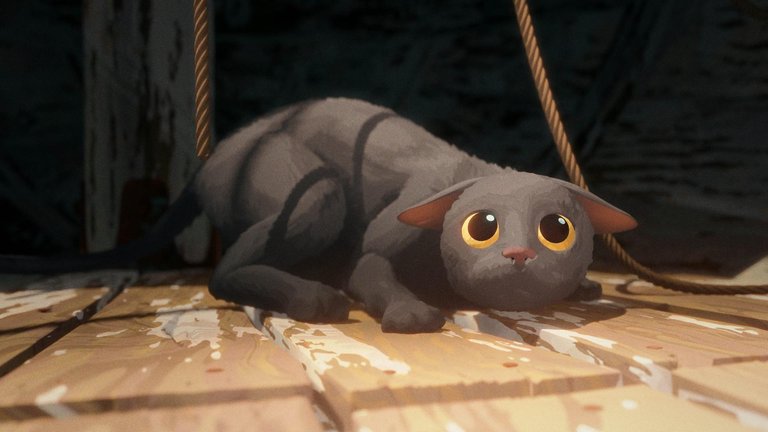
Seeing these animals sail through a flooded land, the first thing I thought was that it was some kind of flood without an ark. Let's think about the story of Noah, a biblical character who built a huge boat to save animals (and some humans) from extinction in the face of global rain and the consequent rise in sea levels around the world. Now let's remove God, the rain, Noah and his family and the ark from that story, what do we have left? a bunch of animals trying to survive on a planet covered by water. That's Flow, in essence.
Al ver a estos animales navegar por una tierra inundada, lo primero que pensé es que era una especie de diluvio sin arca. Pensemos en la historia de Noé, personaje bíblico que construyó una enorme embarcación para salvar a los animales (y algunos humanos) de la extinción ante una lluvia global y el consecuente aumento de los niveles del mar en todo el mundo. Ahora removamos de esa historia a dios, la lluvia, Noé y su familia; y al arca, ¿qué nos queda? un montón de animales intentando sobrevivir en un planeta cubierto por agua. Eso es Flow, en esencia.
There are several things to highlight about the good reception of this film by the public and the circles of experts in the field who have praised and awarded it in different instances. The first thing is that it's an independent animated film, that is, it doesn't come from a large production company like Pixar or Ghibli; The second thing is that it's a co-production between three countries: Latvia, France and Belgium (what better background to tell a story precisely about cooperation?); The third thing is that the film directed by Gints Zilbalodis and co-written by him with Matīss Kaža was made entirely in Blender, a free and open source computer animation software; and finally, this film was selected by Latvia to represent its country in the Best International Film category at the Oscars and managed to enter among the five nominees. I don't remember having seen an animated film in this category before, but it's further proof of its quality. Flow is an exciting adventure and although it is technically a silent story I feel that words are unnecessary when the message is that clear. Personally, I was a little more moved by Wild Robot, but the odyssey of this cat - a species that doesn't get along with water - in the middle of a flooded planet seemed to me to be one of the best animated films I have ever seen. Have any of you seen it yet? I read you in the comments.
Hay varias cosas que destacar sobre la buena recepción de esta película por parte del público y de los círculos de entendidos en la materia que la han elogiado y premiado en diferentes instancias. Lo primero es que se trata de una película de animación independiente, es decir, no proviene de una gran productora como Pixar o Ghibli; lo segundo es que se trata de una co producción entre tres países: Letonia, Francia y Belga (¿qué mejor fondo para contar una historia precisamente de cooperación?); lo tercero es que el film dirigido por Gints Zilbalodis y coescrito por él junto a Matīss Kaža fue hecho en su totalidad en Blender, un software libre y de código abierto de animación por computadora; y por último que esta película fue seleccionada por Letonia para representar a su país en la categoría de Mejor Película Internacional en los premios Oscars y consiguió entrar entre las cinco nominadas. No recuerdo haber visto antes una película animada en esta categoría, pero es una prueba más de su calidad. Flow es una aventura emocionante y aunque ténicamente es una historia muda siento que las palabras sobran cuando el mensaje es así de claro. En lo personal, me conmovió un poco más Wild Robot, pero la odisea de este gato - una especie que no se lleva bien con el agua - en medio de un planeta inundado me pareció de las mejores cintas de animación que he visto en mi vida, ¿alguno de ustedes ya la ha visto? Los leo en los comentarios.
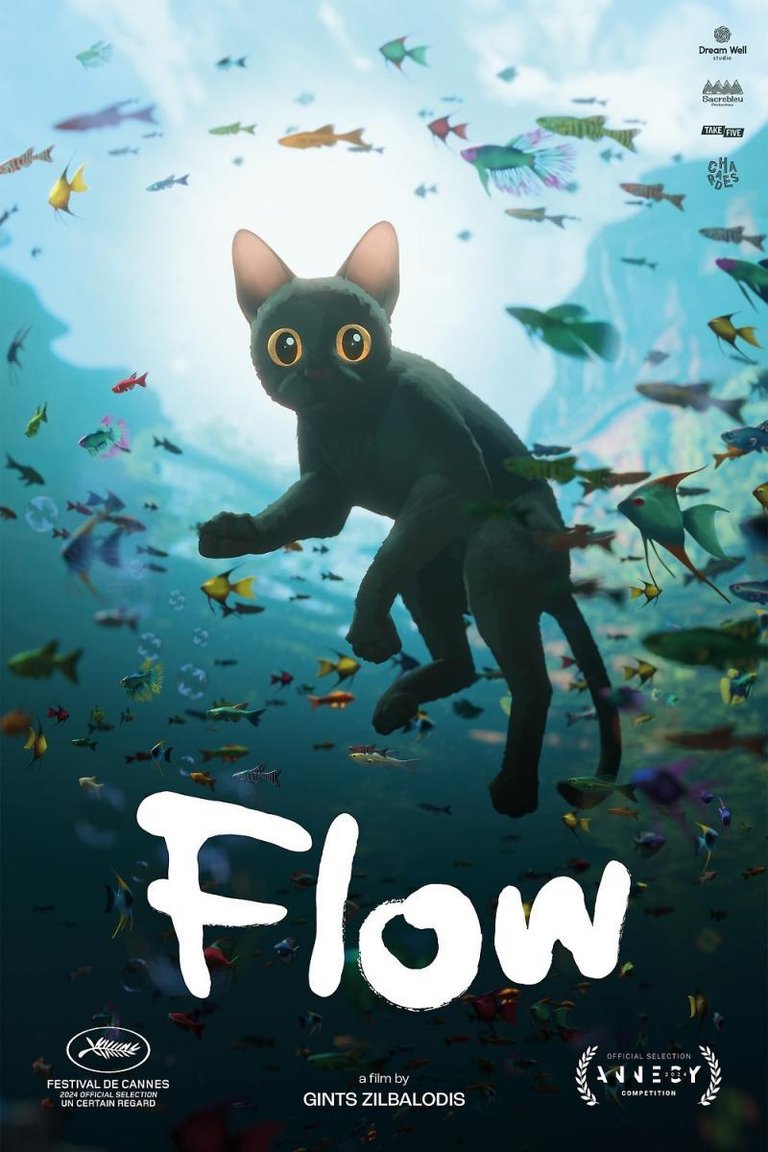
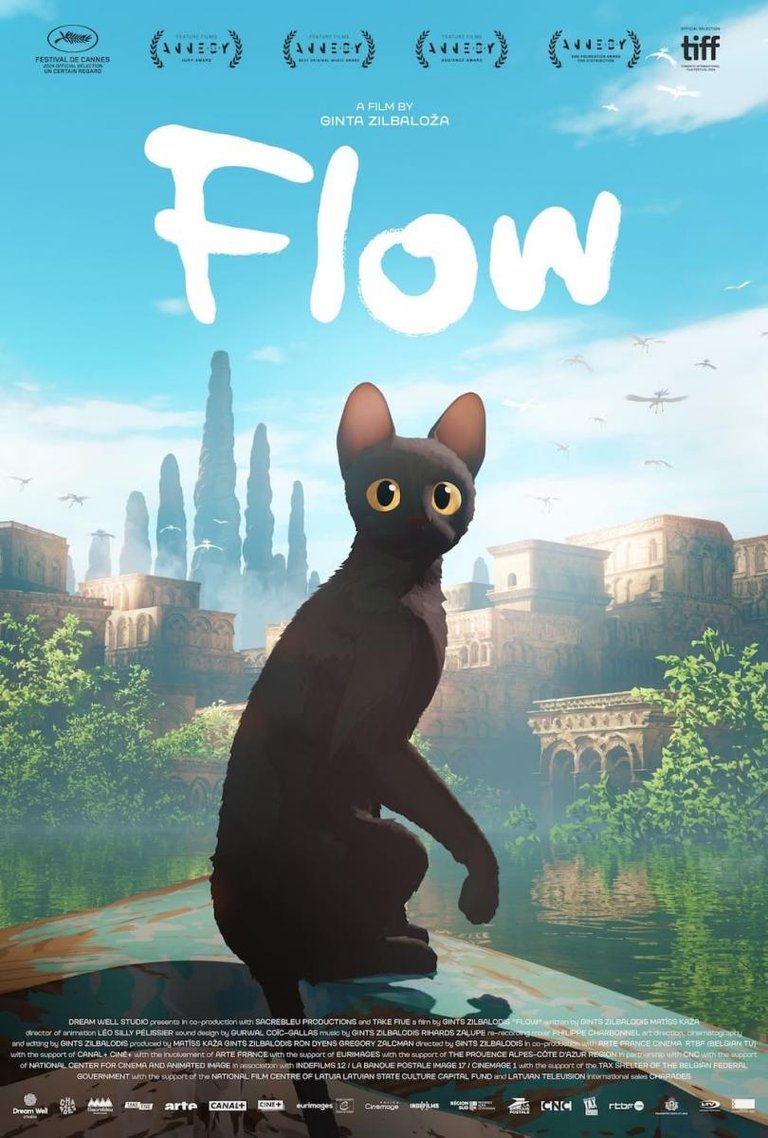
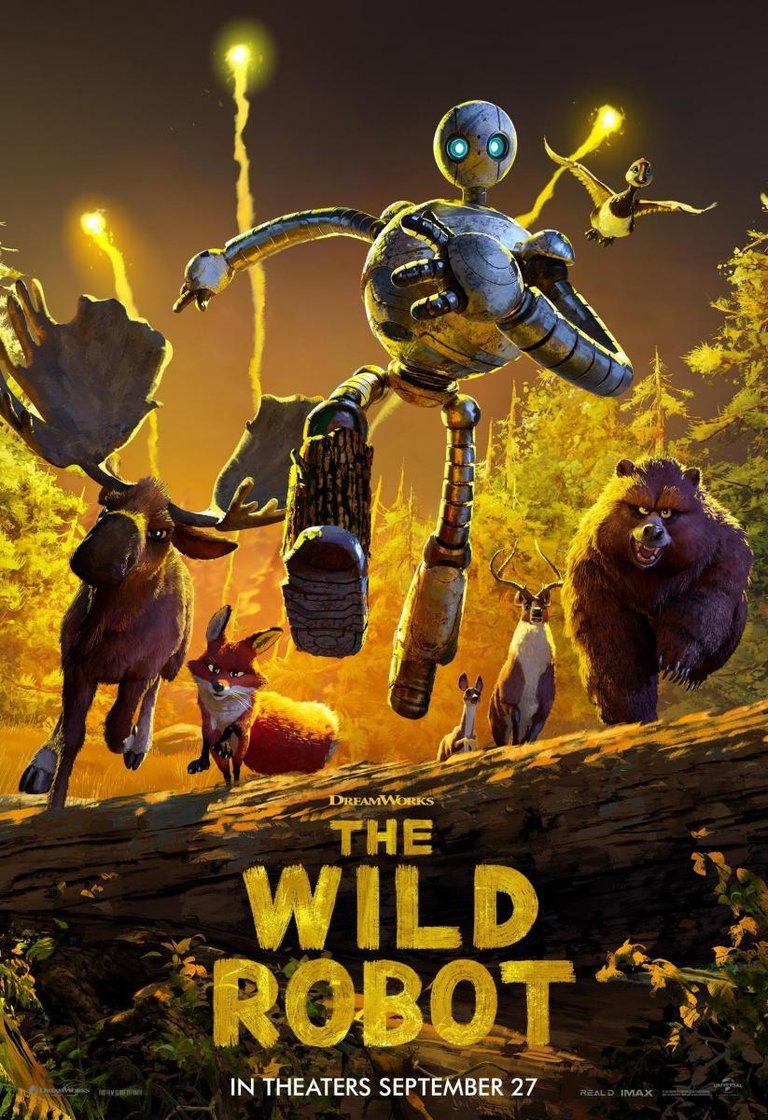
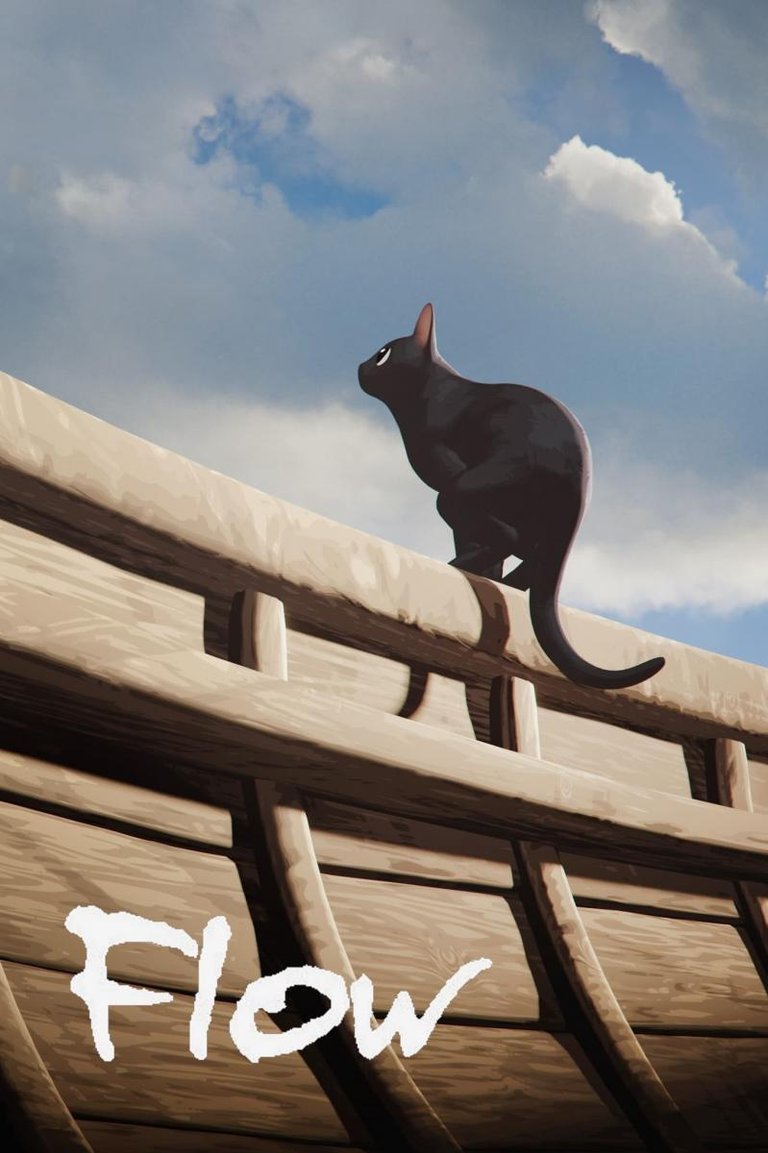
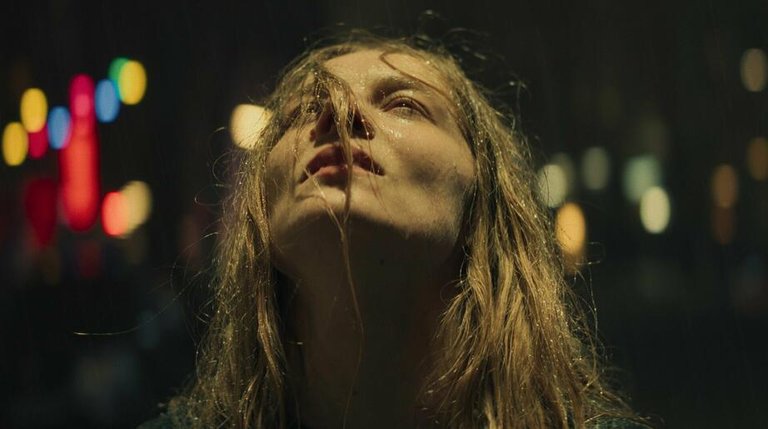
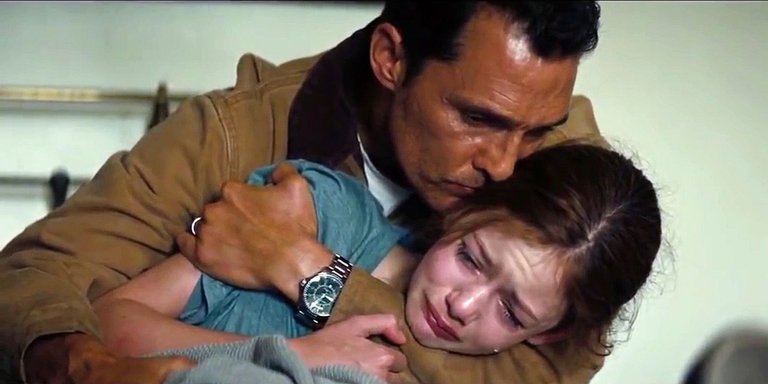
I love the visual style of Flow and for sure will watch it this year as it comes highly recommended by many.
I'm looking forward to it
I hope you like it!
se ve una historia linda, me encantara verla, buen post!
looks like a nice story, I will love to see it, good post!
Thank you so much!
Tenía ganas de verla pero no tuve oportunidad, tu post me intrigó para que vuelvan mis ganas de querer verla, me llama la atención ver cómo es que cooperan entre especies. Incluso también me entró la curiosidad de ver Wild Robot y ver cual logra conmoverme más.
Ya que no has visto ninguna de las dos, te recomiendo ambas y después me cuentas. Saludos y gracias por leerme.